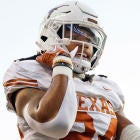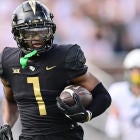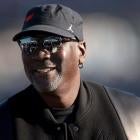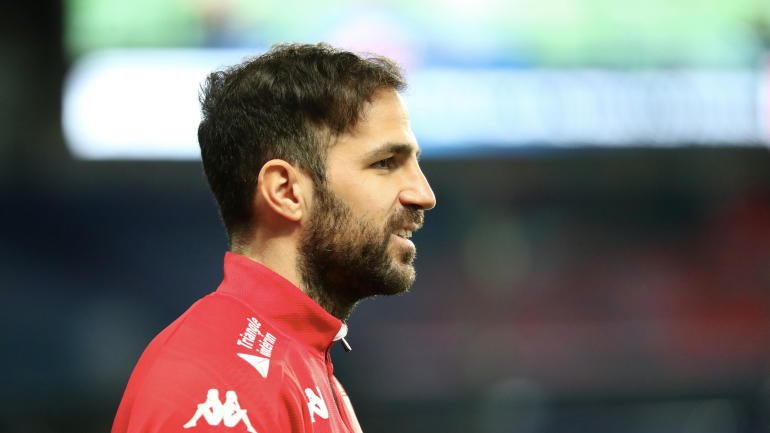
From the moment he first burst into the Arsenal side as a teenager, Cesc Fabregas has carried with him a maturity beyond his years. It ought to be no surprise, then, that even as he looks to aid the Monaco cause off the pitch, his mind is already on a future in the dugout.
Sidelined since mid-September with a hamstring injury, the 34-year-old has not been able to be quite the on-field force he might wish to be as Monaco compete on multiple fronts in Ligue 1 and the Europa League (on Paramount+). Yet the veteran of World Cup, Premier League and La Liga triumphs is certainly finding a way to aid a youthful Monaco side, one that includes such bright young prospects as Aurelien Tchouameni, Elliot Matazo and Sofiane Diop.
Their mentor certainly has experience of breaking through as a youngster. Handed Patrick Vieira's No. 4 shirt as a 19-year-old, Fabregas was captaining Arsenal as a 21-year-old, the engine that made Arsene Wenger's team tick. In time, he would serve a similar role at Chelsea. In an interview for CBS Sports with his former Spain international team mate Luis Garcia, Fabregas explained how his playing career in the heart of midfield meant he has felt like an on-field coach even before he thinks about leading from the sidelines.
"You view the game in another way, you're in the center of everything," Fabregas says. "It's not like when you play on the wing, or fullback, center back or even goalkeepers. You see the pitch from another angle. In midfield, you're surrounded by everybody, you need to see the full picture all the time.
"I always tried to analyze the game faster than the others. I was not very strong, very fast or very physical. So I always had to be better in other aspects of the game. I always tried to be clever and faster on the brain."
Fabregas' was a footballing brain that many great coaches came to rely upon. He has been exposed to some of the finest footballing minds of this generation, from Wenger to Antonio Conte via Pep Guardiola and now former Bayern Munich boss Nico Kovac. The latter is determined to exploit Fabregas' knowledge and asked him to join the Monaco coaching staff for a recent intra-squad friendly.
Craving even more coverage of the world's game? Listen below and subscribe to ¡Qué Golazo! A Daily CBS Soccer Podcast where we take you beyond the pitch and around the globe for commentary, previews, recaps and more.
Fabregas recalls: "While the game was going on, we were talking and trying to analyze the game, what can you do better? [Kovac] was asking me questions, what would you do there? For me, it's a fantastic education."
It is not the only aspect of life in Monaco that Fabregas seems to be relishing. He has developed quite the bond with the young core of the squad and appreciates that a key tenet of this club's philosophy is taking "players that basically nobody knows and making them superstars." His eyes light up when Garcia puts to him that he is serving a similar role to Tchouameni et al that Vieira, Gilberto Silva and Robert Pires did for him.
"I love playing with the young players," Fabregas says." It reminds me of me when I started at Arsenal at a very young age. It's different when you have someone who you can look up to that they talk to you when you make mistakes so you can improve.
"I signed here for the football, of course, 100 percent, but one of the objectives was to try to be someone who the young players can look up to, who can give them the example and the motivation to always be better. They are always asking questions: What happened there, what will happen there, how should I do this? The positioning of my body, what would you do in this situation? To be honest, for me, it's amazing, it gives me a lot of satisfaction."
It can be taken for granted that a player with Fabregas' lustrous history understands how to play effective football. What marks top coaches out, however, is their ability to transmit their vision of the game to their players. Not until he is in the hot seat will it be clear if the 34-year-old has those skills; in the meantime, he can certainly explain clearly and concisely why a switch from 4-3-3 to 4-2-3-1 brought the best out of Monaco last season. It was all about being "a little bit more direct, always with the concept that we want to keep the ball and we want to dominate the game, but quicker transitions, playing more between the lines, but with the objective to run in behind the opponent."
He certainly knows good coaching when he sees it. Fabregas is effusive in his praise of his current boss Kovac. When he turns his eye further afield, he cannot help but be impressed by the work being done at Stamford Bridge. What Chelsea head coach Thomas Tuchel has achieved is all the more impressive to the former Spain international as Fabregas did not necessarily see similar qualities in his Paris Saint-Germain side.
Recalling a 3-2 win over the Parisians at the Stade Louis II 12 months ago, Fabregas explains: "I was playing as a number 10 and I felt I'm running the game here. No one is putting pressure on me. I felt that the team was very distanced, no compactness, nothing. They were not a team.
"I was curious to see how he will do with Chelsea; after two, three games, you could see the impact that he had made. And then I realized that at the end of the day, the team makes the difference. Because if you have a team full of quality like Chelsea have but on top of that, they are humble, they work hard, they're disciplined, they know what to do when they listen to the coach, they give their all, they're together and they are a full team then these results come.
"At the end of the day the message that the manager gives, if the players want to do it it can be very successful. At the same time, it shows us well that if the players don't believe in it, or they don't listen to it, or they do what they want, then the coach can say whatever he wants. He can work 20 hours a day. It will never work."
A keen observer of events in the Premier League, the ex-Arsenal and Chelsea midfielder could not hide his disappointment at seeing one of his former managers back in the Premier League. Antonio Conte's appointment at Tottenham was, he reluctantly admitted, an inspired move.
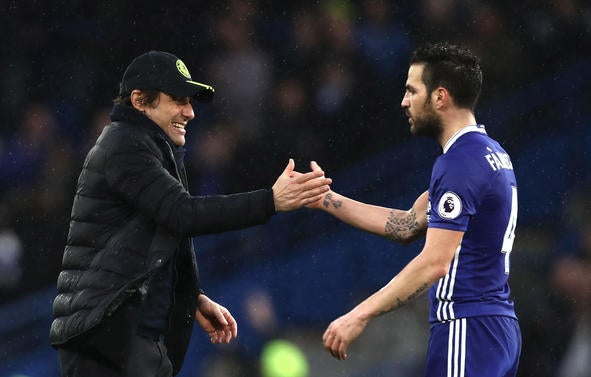
"I think with Antonio, it was the first time that I've seen someone know exactly [what they want] ... It was like going to school. I promise you, he will tell you, from the goalkeeper until you have scored a goal, what you have to do, exactly everything. Maybe it's in a different way to how I saw football. At the beginning, it was difficult for me, don't get me wrong. A lot of running, a lot of intensity. Big sessions, double sessions, gym sessions.
"I always based myself on my own quality, on my own vision, I pass the ball where I feel I will be dangerous and where I can hurt the the opponents. I had coaches like Pep who had a lot of positioning game but we had freedom inside of this. With Conte, the freedom was non-existent, he was telling me where I have to pass the ball.
"I'm 29 years old in that moment, I've already played for 13 years, I played in every final, I won a lot of things and this guy is telling me where I need to pass the ball."
Naturally, it was a tough adaptation for the player who had been raised in the freewheeling style of Wenger's Arsenal where improvisation was key. Under Conte, there was no room for jazzing off course when marching to the strict drumbeat of his tactical plans was demanded.
"You were like a bit like a perfect machine, no freedom but everybody knows what everybody needs to do," Fabregas adds. "It helped me a lot. For example, sometimes if I want to give an assist or a good pass, I was depending [on the other player].
"A player that I loved to play with, Pedrito, [would make] runs in behind, I loved to play with this guy. There were a lot of Pedritos in the team because Conte was teaching them how to exactly make the run and when to make the run. Willian started to make a lot of runs. [Michy] Batshuayi, Diego Costa even Hazard, who was always coming more to feet to play and then be the playmaker, he was running in behind. The machine worked perfectly."
Will Fabregas' teams be guided by the expressive principles of his first manager? Could he be a stern taskmaster a la Conte? Perhaps a hitherto unimagined fusion of Guardiola and Mourinho? It may be some time yet before we find out. All we know for sure is that he has had a managerial crash course that many young coaches would dream of. His first steps into hands on coaching promise are sure to be intriguing.
















